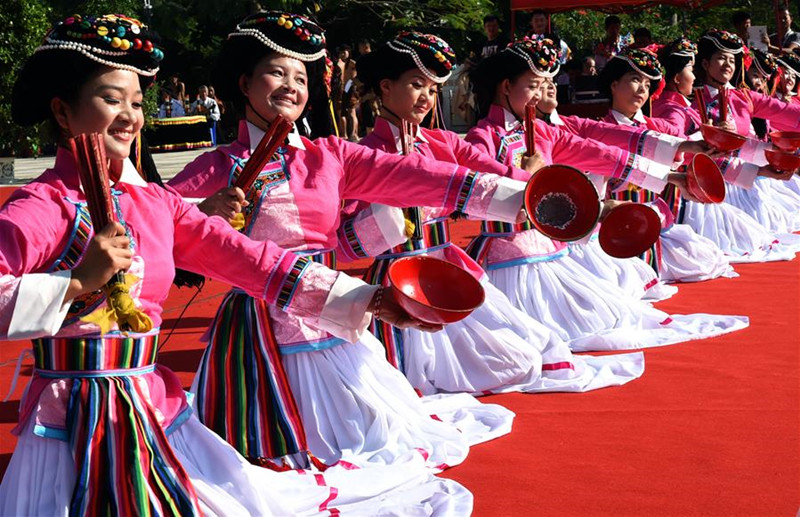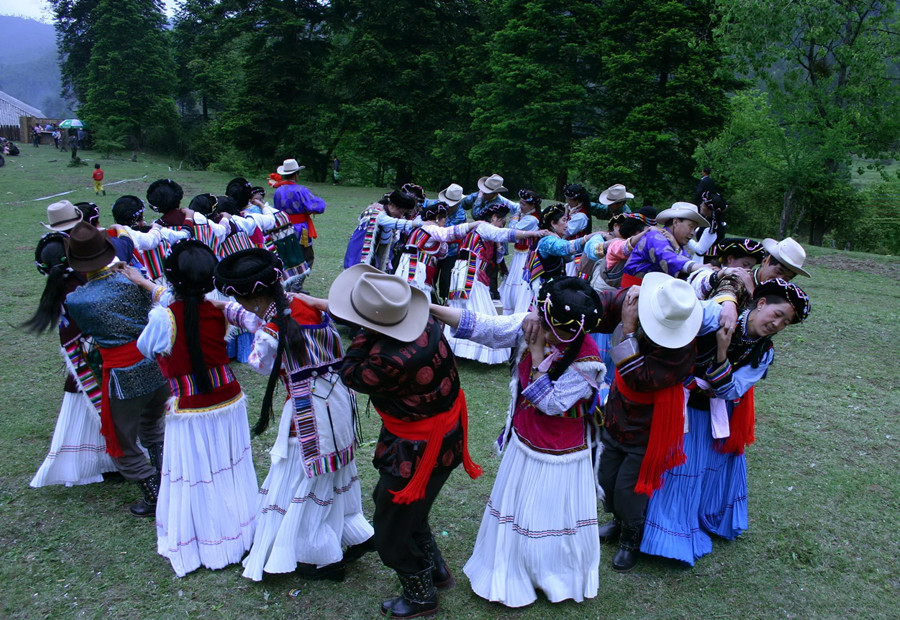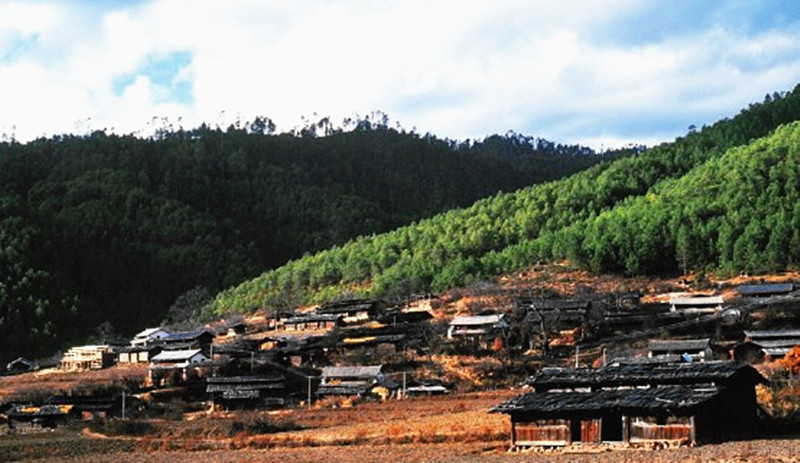
Pumi Ethnic Minority
Pumi is one of the ethnic minorities with a long history and ancient culture in China, with a population of 33,600. The word “Pumi” is a phonetic translation of Pumi, which originally means “white”. It is an ethnic self-identity. It has something to do with its ancient worship of white and its symbol of auspicious.
Distribution of Pumi Ethnic Minority
The Pumis are concentrated in the Yunnan Province counties of Lanping, Lijiang, Weixi and Yongsheng, as well as in the Yi Autonomous County of Ninglang. Pumi Autonomous County in Yunnan
Lanping Bai and Pumi Autonomous County(Nujiang)
Pumi Ethnic Town in Yunnan
Cuiyu Lisu and Pumi Ethnic Town
Featured Pumi Ethnic Villages in Yunnan
Pumi Village Yongsheng County, Lijiang Pumi New Village in Ninglang County
Protection Area of Pumi Ethnic Culture
Qinghua Village Pumi Ethnic Culture Protection Area in Hexi Town of Lanping County, Nujiang
Cultural Heritages of Pumi Ethnic Minority in Yunnan
“Cuocuo” – Folk Dance in Lanping County, Nujiang Sixian Song and Dance in Lanping County, Nujiang
Festivals of Pumi Ethnic Minority in Yunnan
Changxin Festival of Pumi Ethnic Minority Coming-of-Age Ceremony of Pumi Ethnic Minority Wuxi Festival of Pumi Ethnic Minority Wuxijie in Ninglang County, Lijiang Mountain Pilgrimage Festival of Pumi Ethnic Minority Xiaoguonian Festival of Pumi Ethnic Minority Mountain Pilgrimage Festival in Ninglang County, Lijiang Valentine’s Day in Lanping County, Nujiang

 7 Days GolfingTour
7 Days GolfingTour
 8 Days Group Tour
8 Days Group Tour
 8 Days Yunnan Tour
8 Days Yunnan Tour
 7 Days Shangri La Hiking
7 Days Shangri La Hiking
 11 Days Yunnan Tour
11 Days Yunnan Tour
 6 Days Yuanyang Terraces
6 Days Yuanyang Terraces
 11 Days Yunnan Tour
11 Days Yunnan Tour
 8 Days South Yunnan
8 Days South Yunnan
 7 Days Tea Tour
7 Days Tea Tour
 8 Days Muslim Tour
8 Days Muslim Tour
 12 Days Self-Driving
12 Days Self-Driving
 4 Days Haba Climbing
4 Days Haba Climbing
 Tiger Leaping Gorge
Tiger Leaping Gorge
 Stone Forest
Stone Forest
 Yunnan-Tibet
Yunnan-Tibet
 Hani Rice Terraces
Hani Rice Terraces
 Kunming
Kunming
 Lijiang
Lijiang
 Shangri-la
Shangri-la
 Dali
Dali
 XishuangBanna
XishuangBanna
 Honghe
Honghe
 Kunming
Kunming
 Lijiang
Lijiang
 Shangri-la
Shangri-la
 Yuanyang Rice Terraces
Yuanyang Rice Terraces
 Nujiang
Nujiang
 XishuangBanna
XishuangBanna
 Spring City Golf
Spring City Golf
 Snow Mountain Golf
Snow Mountain Golf
 Stone Mountain Golf
Stone Mountain Golf















